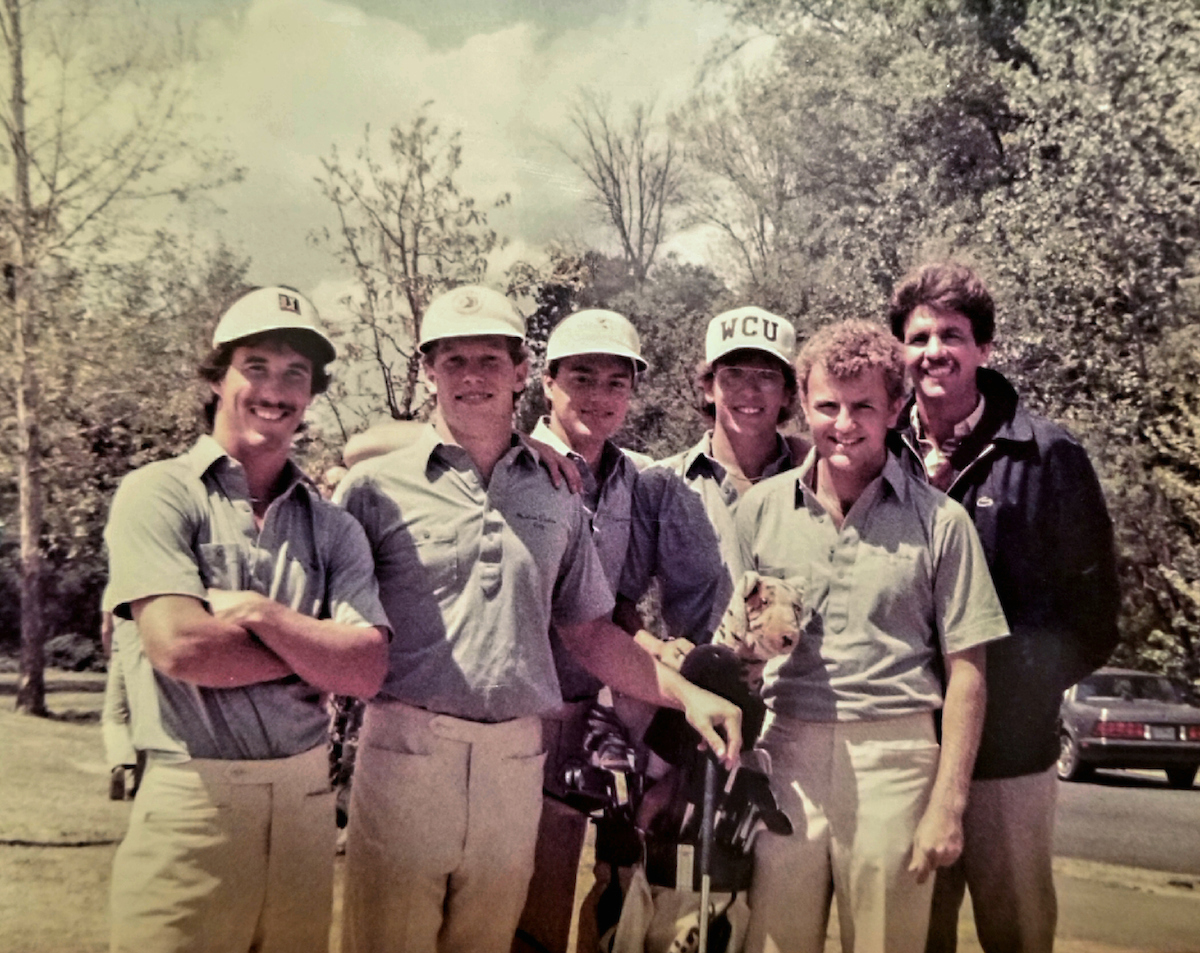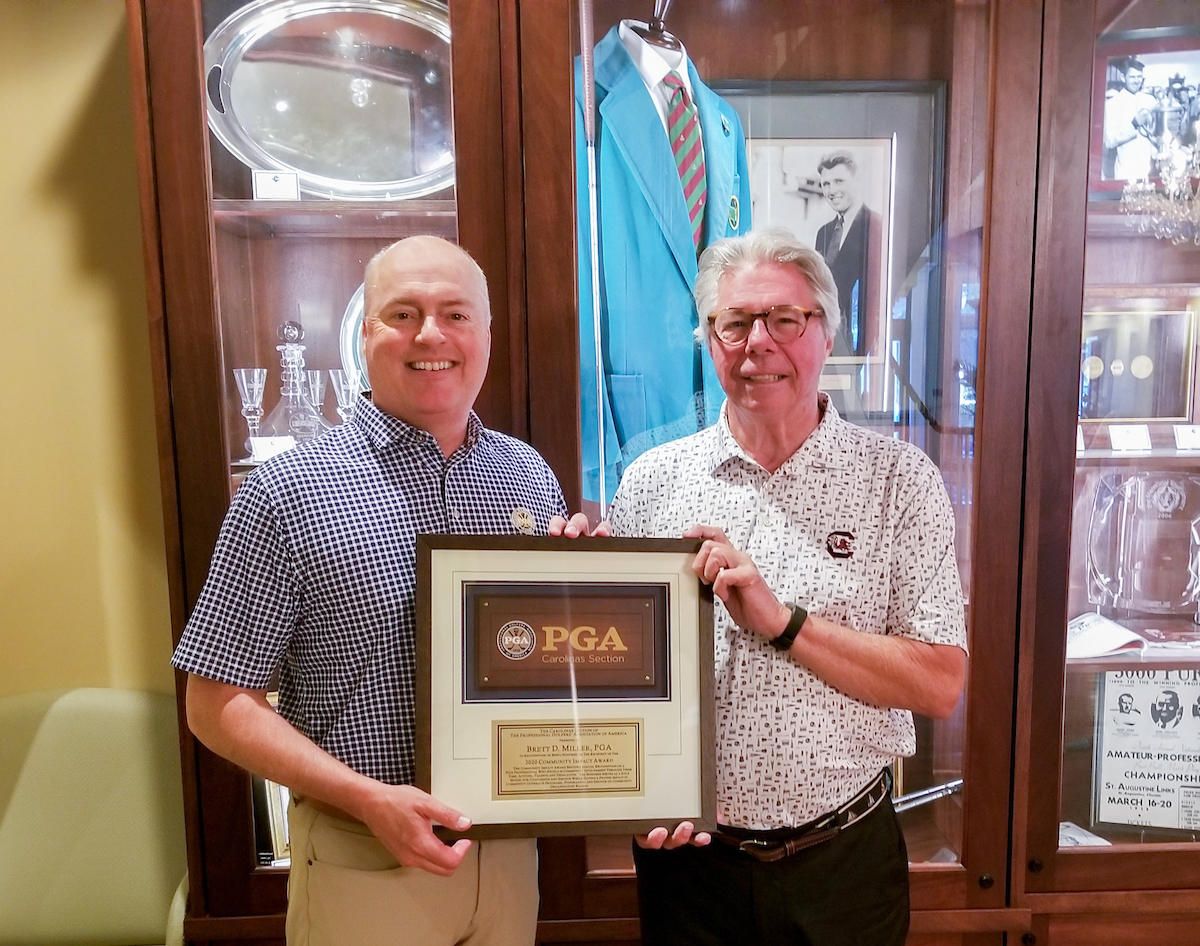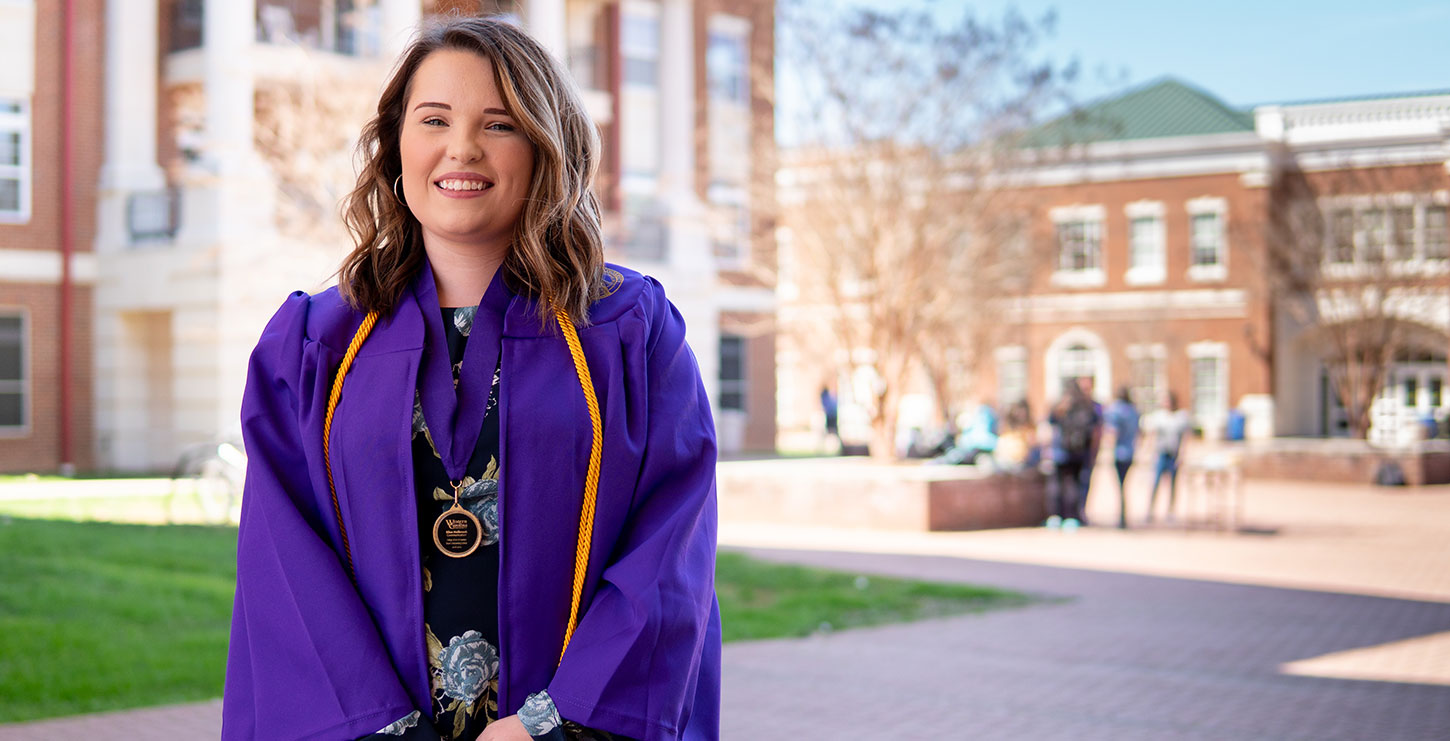No More Whiffing
Brett Miller honored for lifetime of helping others through golf
By Melanie Threlkeld McConnell

Brett Miller ’87 MAEd ’88 became addicted to golf because he was good at baseball. If he could blast a baseball — a moving target — then surely he could hit a stationery ball, he reasoned.
“At 13, I thought I was a decent little baseball player, and then I picked up a golf club and would actually whiff the ball,” said Miller, owner of Miller Management, a consulting firm for golf facility operations and brokerage of golf properties. “It drove me crazy. I just had to try to conquer the sport and I think that’s what gets every golfer. They just get caught by the bug. They also get caught by the comradery, the people you get to hang out with. But it’s the challenge. It just sticks with you. It’s crazy, it really is.”
Crazy or not, Miller’s persistence paid off. In the five short years after he swung his first club at Etowah Valley Golf Club, where he worked as a teenager, Miller entered Western Carolina University on a golf scholarship and proceeded to rip through the college circuit as a three-time All-Southern Conference player, eventually earning himself a place in WCU’s Athletic Hall of Fame. After graduating, Miller carved out his niche as a real estate agent for golf courses in the Southeast, focusing on public courses to ensure his favorite sport was available to anyone who wanted to play.
In May, Miller was honored for that commitment as the first recipient of the Community Impact Award presented by the Carolinas Section of the PGA. He received his award during the 103rd PGA Golf Championship held May 17-23 at The Ocean Course at Kiawah Island Golf Resort.
“It was quite an honor to receive the award this time of year and with the PGA Championship right here in the Carolinas, and of course, among friends in golf,” Miller said.

Jeff Abbot, executive director of the Carolinas PGA Section, said Miller is the “epitome” of what the award stands for. “Over the course of his 30 years as a PGA professional, Brett has served on countless boards, including the Carolinas PGA,” Abbot said. “He has supported important causes for diversity and inclusion, as well as serving our disabled veterans by helping to found our PGA HOPE chapter in Asheville.”
Miller volunteers with the Cindy Platt Boys & Girls Club of Transylvania County and the Western North Carolina chapter of PGA Hope, a national program that teaches golf to veterans. He started the Asheville chapter and also is starting chapters in Johnson City, Tennessee, and Roanoke, Virginia — all affiliated with their respective U.S. Department of Veterans Affairs hospitals.
“I really enjoy doing it and I’m certainly the one who benefits the most from these guys. They have a big time and it’s great meeting them and getting their mind off of other things and their focus on a sport, a recreation,” said Miller, who started his own company about 15 years ago while managing Broadmoor Golf Links in Fletcher.
Miller also serves on various boards throughout Western North Carolina, has helped develop and support women’s golf programs at WCU, University of North Carolina Asheville and Brevard College, and supported initiatives to increase diversity in golf for juniors at Skyview Golf Association, a nonprofit organization that promotes golf competition among African American golfers throughout the region.
“I was quite humbled with this award from our over 2,000 PGA professionals in the Carolinas,” Miller said. “I feel being able to associate and work with some of these great organizations and people is my blessing and honor. You learn much about perspective.”
Miller credits Hayes Albea, the PGA professional who first hired Miller years ago at Etowah Valley Golf Club, for helping develop his perspective on the relationship between golf courses and their communities. He saw, too, how the country’s fluctuating economic status affected the ebb and flow of golfers who supported one of his little community’s biggest assets.
“You know the country club has changed dramatically from what it was 30 years ago. It’s more of a multi-recreational, open facility now,” Miller said. “I was always affiliated with public fee golf courses and welcoming everyone to the game of golf and that’s something that’s very important to me.”
Through his real estate business and volunteering, Miller’s plan is to keep golf viable for everyone by creating new models to help public courses better survive economic downturns and by bringing more diverse players to the game, because, as he learned so long ago, there’s more to golf than just not whiffing the ball.
“It is strategic. Everything I do with the game is strategic,” he said. “Golf pulls people up socioeconomically. It certainly lifted me up socioeconomically. The contacts you make in golf, it just lifts people up and gives them more opportunity.”


